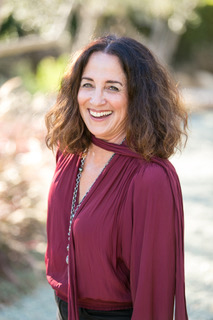Last week one of my favorite writers and mentors, the late Anaïs Nin, would have turned 117 years old. When I was a young, budding writer, she played a huge role in establishing and liberating my writing voice. Through her published journals, Nin gave many women in my generation permission to write from their hearts with utmost honesty and truth-telling. She inspired us to follow our true feelings, admit to our absurdities, and trust ourselves. Nin’s journals taught me that we should never apologize for any opinions, thoughts, or concerns that we have. She encouraged her followers to embrace all of the chaos and failures in life, as well as the joys and accomplishments.
I felt an immediate kinship toward Nin because we both began journaling during a difficult time in our lives. She began writing in her journal at the age of eleven when her father left her family for a younger woman, causing the young Nin to feel distraught and sad. Her very first journal entry was a letter to her father, where she expressed her true feelings. Even though she never sent the letter, it was the foundation for her lifelong passion for journaling.
I began writing in my journal at the age of ten when my grandmother/caretaker committed suicide, which left a huge hole in my heart. My mother gave me a Kahlil Gibran journal and told me to write down everything I was experiencing.
Our best and most authentic voices come out during times like this, when there’s a great sense of urgency. That’s because these are times when we most want and need to be heard. Furthermore, our voices, whether written or spoken, are our most powerful tools. During these challenging times, we’re probably also using our authentic voices, as we’re most likely speaking from our hearts and expressing genuine emotions. In a sense, we become fearless. This is what Nin taught me: to be courageous. You’ll know when you are using your authentic voice because your writing feels just right and the words flow quite easily.
Some years ago I met with memoirist Mary Karr, who told me she believed that great memoirs can live or die based 100 percent on the voice of the writer. She said that all the great memoir writers she knows sound on the page like they do in person, and that their voices make you feel close to them, almost as if you’re inside them or walking beside them. For this reason, when I’m teaching my writing workshops and trying to inspire my students to find their authentic voices, I tell them to try to make believe they’re telling their stories to friends sitting across the table from them.
Reading the works of authors you enjoy can also help you find your authentic voice. Some other tricks you can use to do so include writing to someone with a photo of that person near your writing area. If you’re writing about someone, then consider keeping some of their artifacts by your side. Some years ago, I was gifted a purple cape that used to be Nin’s. It was one of the most precious gifts I’d received in my entire adult life. Whenever I want to be inspired and/or if I want to write about her, I take it out of the plastic bag hanging in my closet and wear it. I feel completely engulfed by Nin’s spirit and love. I know that having her near me improves my writing immensely.


